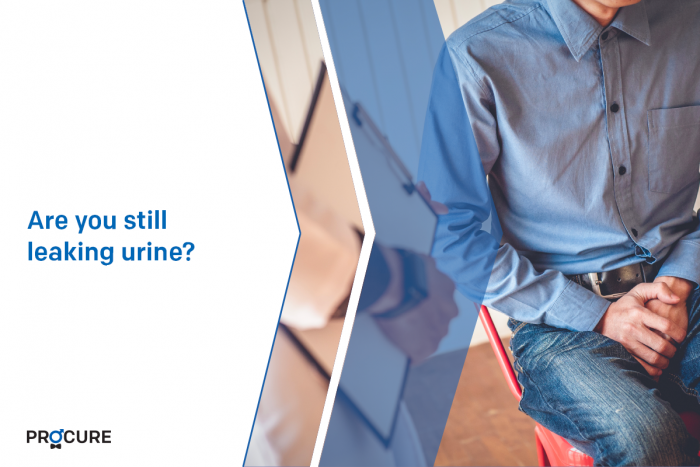Most men do not have permanent incontinence after prostate surgery. It is still important to know that the possibility of occasional or permanent urine leakage can happen after surgery. Knowing this will help you better cope with the situation if you are still leaking urine, and discuss it openly with your doctor.
First, let’s talk about numbers!
Note that after radical prostatectomy, many men observe more or less significant leakage. But for 95% of you, this incontinence during the first weeks after surgery, fortunately, does not last. Over time, your bladder control will return to “normal” or only mild stress urinary incontinence will remain.
Between 5% and 10% of you will experience stress urinary incontinence within a year of your surgery, and for less than 5% of men, this incontinence will become permanent. Do not panic if you are in the bottom 5%, as there are interventions to correct this situation.
Occasional incontinence sometimes occurs after a transurethral resection of the prostate (also called TURP) which works to relieve your urinary symptoms, especially if you have had a urinary blockage in the past. This urinary disorder usually goes away about 1 month after surgery.
Kegel exercises, absorbents, and co…
Your doctor will probably talk to you about Kegel exercises. They involve compressing the muscles of the pelvic floor as if you were trying to hold back gas or a bowel movement. Kegel exercises increase the muscle tone needed to hold urine.
Protective products available to manage male incontinence are of great use during the period immediately following your surgery. The products available today do not attract attention and effectively absorb liquid and odors. If you have only minor leaks, thin incontinence lining pads in your underwear may provide sufficient protection. In addition to using incontinence pads, you should also stay active, maintain a healthy weight, and continue to perform your Kegel exercises.
That’s good, but I still have urinary leaks!
Hence the importance of talking to your specialist. For instance, if your leaks persist for 12 months after your surgery, they can suggest alternatives, depending on your situation. Decisions are made on a case-by-case basis. Below are a few blog posts that we hope will address your concerns.
Take the time to visit each of our pages on this website, as well as our YouTube channel, in order to get familiar with the disease with our expert lectures, our section on available resources, the support that is offered to you.
Do you have any questions or concerns? Above all, do not hesitate. Contact us at 1 855 899-2873 to discuss with a nurse specializing in uro-oncology. It’s simple and free, like all our services.
A webinar that might interest you (in French only)
Urinary, sexual or intestinal problems?
Pages of our site that might interest you
Want to know more? Just click on one of the links below.
Urinary problems?
Resources for you
PROCURE news that may interest you
Each week, we publish a blog article. Here are a few for you.
How perineal and pelvic rehabilitation can help you?
Persistent incontinence… When to consider surgery?
The penile clamp to the rescue of male incontinence?
Written by PROCURE. © All rights reserved – 2021



 ADDITIONAL RESOURCES
ADDITIONAL RESOURCES

